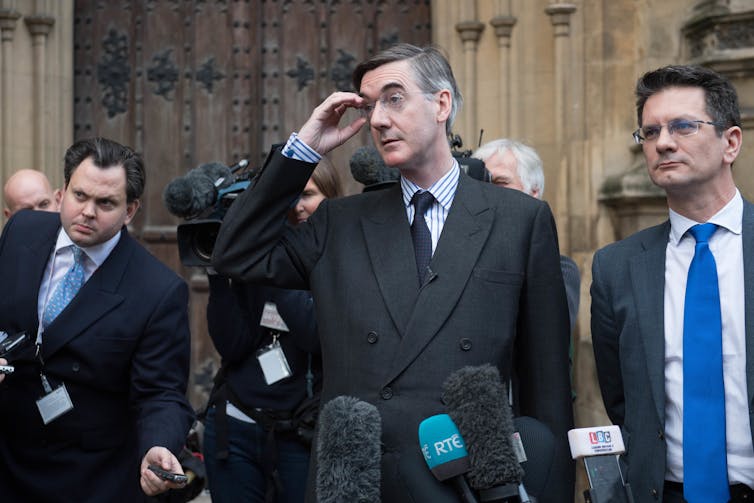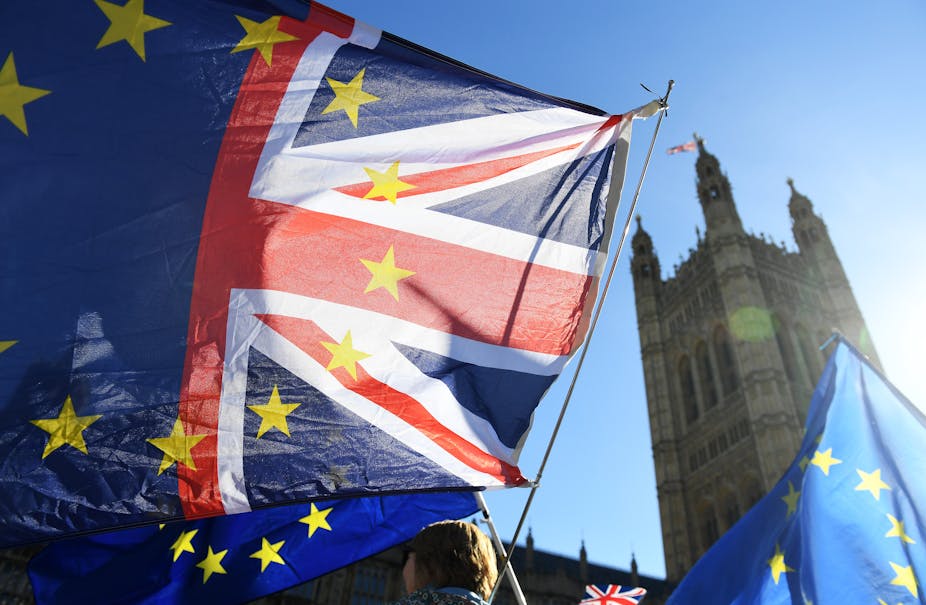The contrast between what she said and the way she said it was stark. In a subdued, almost reticent way, Theresa May told the nation on the steps of 10 Downing Street on November 14 that she “believed with her head and her heart” in the draft withdrawal agreement she had negotiated with the EU. The cabinet also backed it, she told us.
As subsequent cabinet resignations have proven, there was no such agreement. The whole address looks increasingly like it could be the first part of a long and drawn out resignation letter.
It was also the culmination of May’s ultimate folly: the crumbling of her absurd red lines. These red lines – leaving the customs union and the single market, ending the jurisdiction of the ECJ – were never compatible with not having a border between Northern Ireland and the Republic, nor with a smooth transition in general. More painfully, these red lines were almost totally unnecessary. These issues were not on the 2016 referendum ballot. History will be a harsh judge as to why May and her team – stand up, Nick Timothy – chose to go down this path.
It has been clear for a long time that there is little appetite for these red lines especially in light of the potential impacts (a border in Ireland and disruption to trade to name two). But the root of the problem is this: from the moment she became PM, May played to a particular gallery: the Hard Brexiteers within her own party. It was to these people, first and foremost, who May spoke. Despite appeals to the hallowed “will of the people”, it was the will of the Brexiteers that May appealed to from late 2016 onwards.
But now that approach has crumbled on contact with the reality of UK and EU politics. Not only does this deal achieve the remarkable feat of being both the product of her red lines and an immediate transgression of them, May’s appearance before parliament the day after the Withdrawal Agreement was published showed one thing clearly: her deal has not only divided her cabinet but has no support in the Commons.
What next?
The question now, then, is what happens next, and there are two areas to focus on. First, what happens to the government and the Conservative Party. With rumours that the 1922 Committee has the requisite number of letters (48) to trigger a leadership challenge circulating, and with rumours that even May and her team now realise that “no Brexit” is an option, one thing is clear: business as usual is not possible.

This could mean an eventual vote of no-confidence, ousting May, and even another general election (though the latter is unlikely given that it would require two thirds of the Commons to vote for it). It could also mean that May hangs on, and the deal is voted down, and the UK careers towards an exit from the EU with no deal. One thing is for sure: parliamentary gridlock and uncertainty is the new reality.
The second area to consider is what the Labour Party will now choose to do. Will Jeremy Corbyn make the same mistake as May has done, and elevate the immediate politics of his party – including the politics of which Labour constituencies voted Leave – above the national interest? Or will he do the one thing the UK has so badly lacked over the last two years: put all personal and party politics aside and face the reality of just how difficult the implementation of the result of the 2016 referendum was.
If the Labour Party was to choose the latter course, it has to address three key issues head on. First, just how flawed the idea of the 2016 referendum was in the first place – the binary Leave/Remain ballot paper on such a complex issue was asking for trouble. Second, how problematic the Leave campaign itself was. On top of the most egregious lies – the bus, the purported ascension of Turkey – we now know that there are criminal charges to be answered around the Leave campaigns, official and unofficial.
Finally, it must deal with a much more deep-seated and intractable issue in UK politics: the framing of the EU in the political community of the UK. Ever since joining in 1973, both sides of the political divide have misrepresented what the EU actually is and the idea that the UK is exceptional and worthy of special treatment. Worse, when politically expedient, they have blamed the EU for various domestic woes.
This litany of delusion on the part of the UK political establishment needs to be taken on by a party or a leader who has no ideological axe to grind, has no gallery to play to, has only the desire and the ability to lead in the greatest sense of the idea of leadership – taking many millions of people with you on a journey they may disagree with in the name of the national interest.
It remains to be seen whether Corbyn or Labour is up to this challenge. But there is no doubt that no matter what happens in the Commons in the next few days, in the long term, the emergence of a political figure or movement that can do exactly this is what the UK most desperately needs.

